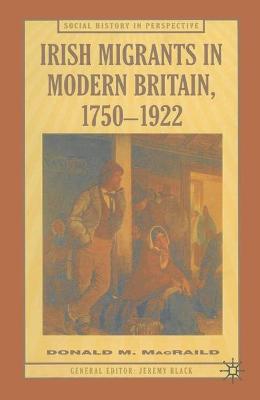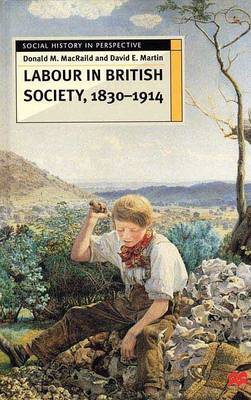Social History in Perspective
2 total works
Until the advent of "New Commonwealth" migration in the 1950s, the Irish were by far the largest ethnic minority in Britain. This study focuses on the most important phase of Irish migration, providing an analytical discussion of why and how the Irish settled in such numbers. It examines key aspects of the social, religious and political worlds of these migrants and explains why they were so often the victims of native hostility. The book avoids the "famine centred" and "big city" focus of many studies and demonstrates the long run chronology and wide ranging geography of this important migration.
Labour in British Society, 1830-1914
by Donald M. MacRaild and David E Martin
Published 23 August 2000
In the nineteenth century, more so than now, work shaped people's lives. The nature and variety of their labour governed where and how they lived. The main theme of this wide-ranging analytical narrative is how the lives of the working class changed in Britain between 1830 and 1914. Few groups of workers were unaffected by the transformation of the economy; for most, the impact was profound. In a study that deploys a range of primary material and takes account of recent historical writings, the authors examine the nature of the changes that took place and their consequences. The treatment is thematic, while ensuring that a clear account is given of how workers' economic, social and cultural lives were subject to change.

